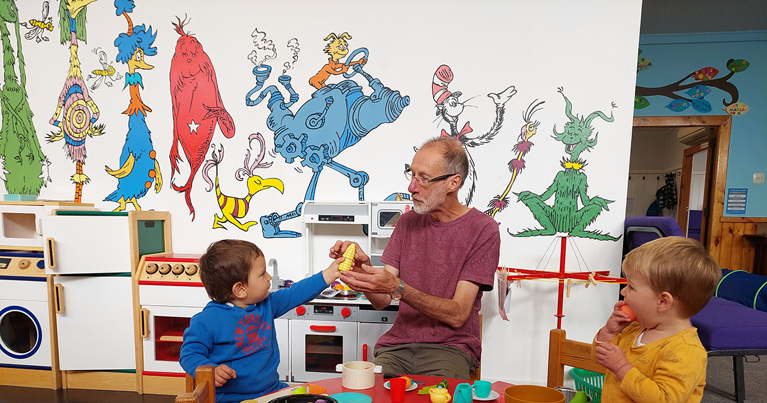-
-
Cr Alan Somerville
-
-
-
-
-
-
-
-
-
-
-
-
-

Cr Alan Somerville
Councillor - Dunedin Constituency
| Portfolio: | Transport |
| Email: | Alan.Somerville@orc.govt.nz |
| Tel: | 027 354 4854 |
Alan is in his second term on the ORC. Before that he spent thirty years in Playcentres and the wider early child sector.
Alan’s introduction to early childhood teaching was taking his oldest child to Riselaw Road Playcentre in 1995 and he never left. He keeps his hand in (the playdough) leading playgroup every Tuesday at the Dunedin Parents Centre in Mornington. Safe to say he’s heard The Wheels on the Bus a fair number of times and is used to sitting in child-sized chairs.
Why did he stand for election to ORC?
“It’s all very well believing in things, like action on inequality and doing something about the effects of climate change — but it’s not much use unless you do something meaningful. So, I stuck my head above the parapet.
“I’ve been inspired by my children and how adventurous they have been in their lives — I thought I could do with taking a risk myself.”
What does he hope to get from the experience?
“I learnt a huge amount in my first three years on Council. I’d really like to see ORC become a leader in environmental protection and climate change action, finding a way to help all of Otago to a prosperous, low-emission future.”
Alan says his core belief system has been influenced by Te Whāriki – the early childhood curriculum — and its principles of relationships, family and community, holistic development, and empowerment.
“I’m also concerned with equality and intergenerational equity. Why should we live in this lovely place only for future generations to experience environmental catastrophes? How can that possibly be fair?
“We must encourage meaningful change — and seeing it as just individual responsibility is not the way to go. We need system change. If the systems aren’t there, people aren’t able to make changes to their lifestyle that may protect the environment and the planet. When public amenities like primary health care and hospitals, public transport, urban and national parks are of a high standard that all can enjoy, people are lifted and able to do more good.”
Alan is also involved in Abbeyfield Dunedin, affordable rental accommodation for elderly people.
“Part of a larger movement, it’s a wonderful model. We have a housekeeper who makes lunch and dinner each day. Our nine residents enjoy company, warmth, and good food – three of the essentials for continued good health. Management is by a voluntary committee. Like the Parents Centre, here’s another group of committed people working together to look after others.
“I get away tramping whenever I can. There are plenty of wonderful places to choose from and we are lucky to live close to many of them in Otago. I believe we have to make sure these places remain just as beautiful for later generations.”
What does he bring to the table?
“An ability to listen to people. Throughout my early childhood career, I’ve had plenty of practice getting people to work together and find agreement. Early childhood teaching is always collaborative, and a council needs to work together too. The regional council has a very important job: responsibilities to future generations and also to the people who are here now. Decisions we make affect people’s livelihoods, and that’s where it can get really tough.”

Alan Somerville at Dunedin Parents Centre
